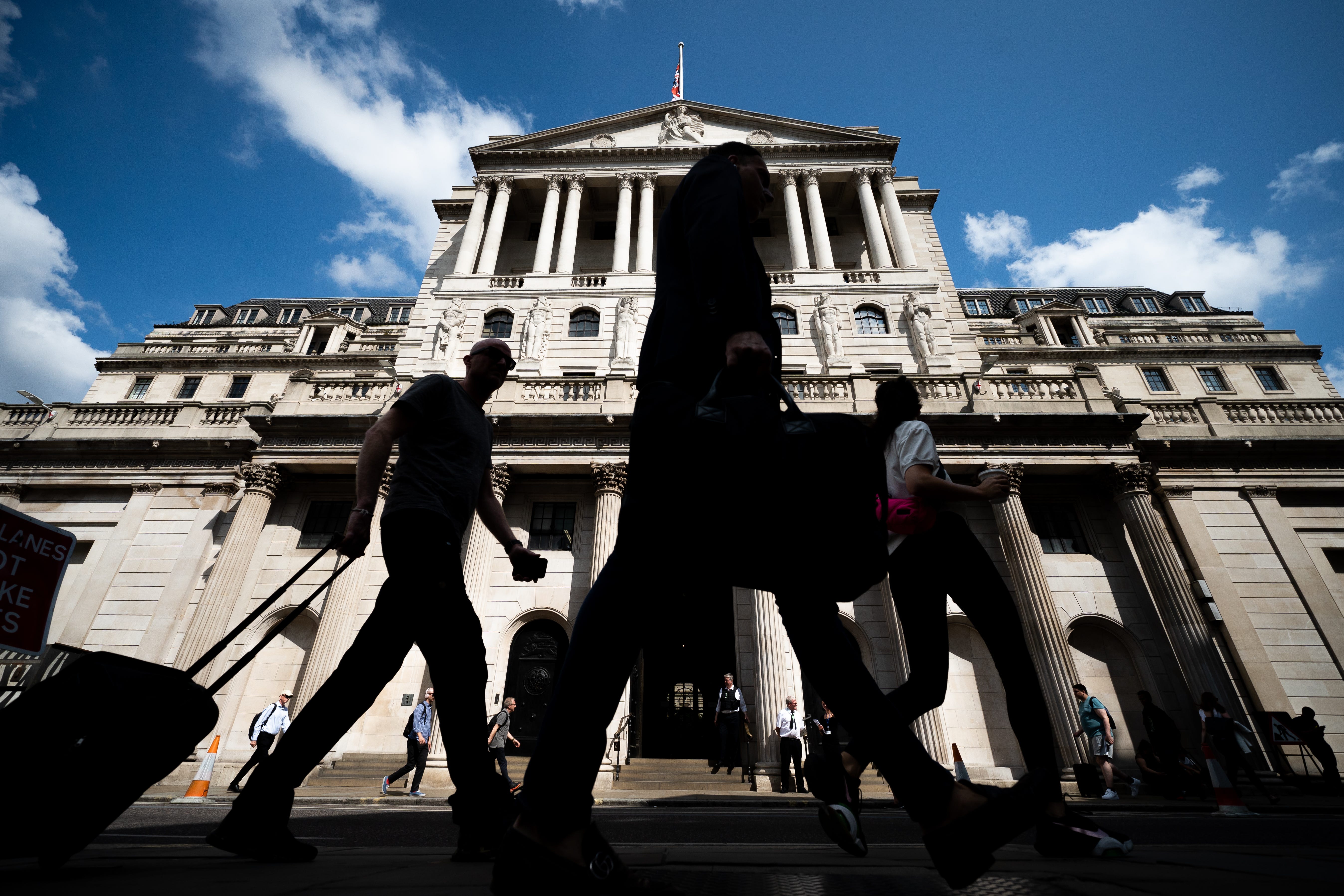Bank of England holds interest rates at 4.75% but says UK economy stagnating
The Bank’s Monetary Policy Committee said it was keeping rates unchanged on Thursday following a divided vote among policymakers.

UK interest rates have been held at 4.75% following a divided vote among Bank of England policymakers, as they weighed up concerns over a stagnating economy and persistent inflation.
The Bank’s Monetary Policy Committee (MPC) said it was keeping rates unchanged on Thursday after cutting the level in August and again in November.
But it was not a unanimous decision, with six members preferring to keep the base rate at 4.75% while three voted for a 0.25 percentage point cut.
New projections from the MPC showed that economic growth will be worse over the final three months of 2024 than it had previously predicted.
It was now expecting zero gross domestic product (GDP) between October and December, weaker than the 0.3% growth it had forecast in November.
Concerns over the new growth projections, sluggish demand and a weakening jobs market were enough to encourage three members of the MPC to vote for interest rates to be reduced.
But the majority of the committee felt that inflation remaining above the Bank’s 2% target warranted a more gradual approach to easing monetary policy.
It followed new official data on Wednesday showing the rate of Consumer Prices Index (CPI) inflation rose to 2.6% last month, its highest level since March and the second monthly increase.
Since the November MPC meeting, the growth-inflation trade-off has worsened, which appears to have prompted the split on the committee
Governor Andrew Bailey said the central bank needed to make sure inflation returns to the target level on a “sustained basis”.
“We think a gradual approach to future interest rate cuts remains right, but with the heightened uncertainty in the economy we can’t commit to when or by how much we will cut rates in the coming year,” he said.
Matt Swannell, chief economic adviser to the EY Item Club, said: “Since the November MPC meeting, the growth-inflation trade-off has worsened, which appears to have prompted the split on the committee.
“The majority of MPC members continue to favour a gradual approach to reducing bank rate to ward off sticky inflation.
“This would allow time to see how the changes to employers’ national insurance contributions (NICs), the national living wage and trade policy play out in the labour market and across wages and prices.
“For the minority of the committee who favoured a rate cut, they had greater and more immediate concerns around weakening growth data.”
Policymakers said they considered the potential impact of measures announced in the Government’s autumn Budget, and from geopolitical tensions and trade policy uncertainty.
These factors meant the economic outlook was more uncertain.
Measures in the Budget, namely a planned increase to the rate of employer national insurance and the national living wage, could affect future inflation, the MPC said.
This is because businesses have indicated that they might respond to higher taxes by raising prices, or by laying off existing workers.
Meanwhile, the committee also discussed risks to inflation and economic growth from the incoming Donald Trump presidency in the US, as he had proposed hiking tariffs which could influence global trade.
How big an impact such a measure could have on the UK economy is not yet known, the MPC emphasised.
The Bank’s decision comes a day after policymakers in the US reduced interest rates, but signalled they would be slowing the pace of rate cuts going forward after inflation forecasts were revised higher.
The cautious tone and shift in expectations weighed heavily on investor sentiment, with US and European stock markets seeing sharp falls.
Some economists said they were now expecting the next UK interest rate cut to come in February, the first of three to four reductions over the course 2025.
“We continue to think there is a good case for steady monetary policy easing next year despite the recent hawkish news from wages and inflation,” said Rob Wood, chief UK economist for Pantheon Macroeconomics.
“But the MPC will have to be cautious in the face of inflation likely rising above 3% in the spring, with highly visible price rises that could destabilise inflation expectations that are already above average and rising.”
He said this includes the announcement on Thursday morning that households in England and Wales will see their water bills increase by an average of £86 next year, which will drive inflation higher.
Bookmark popover
Removed from bookmarks